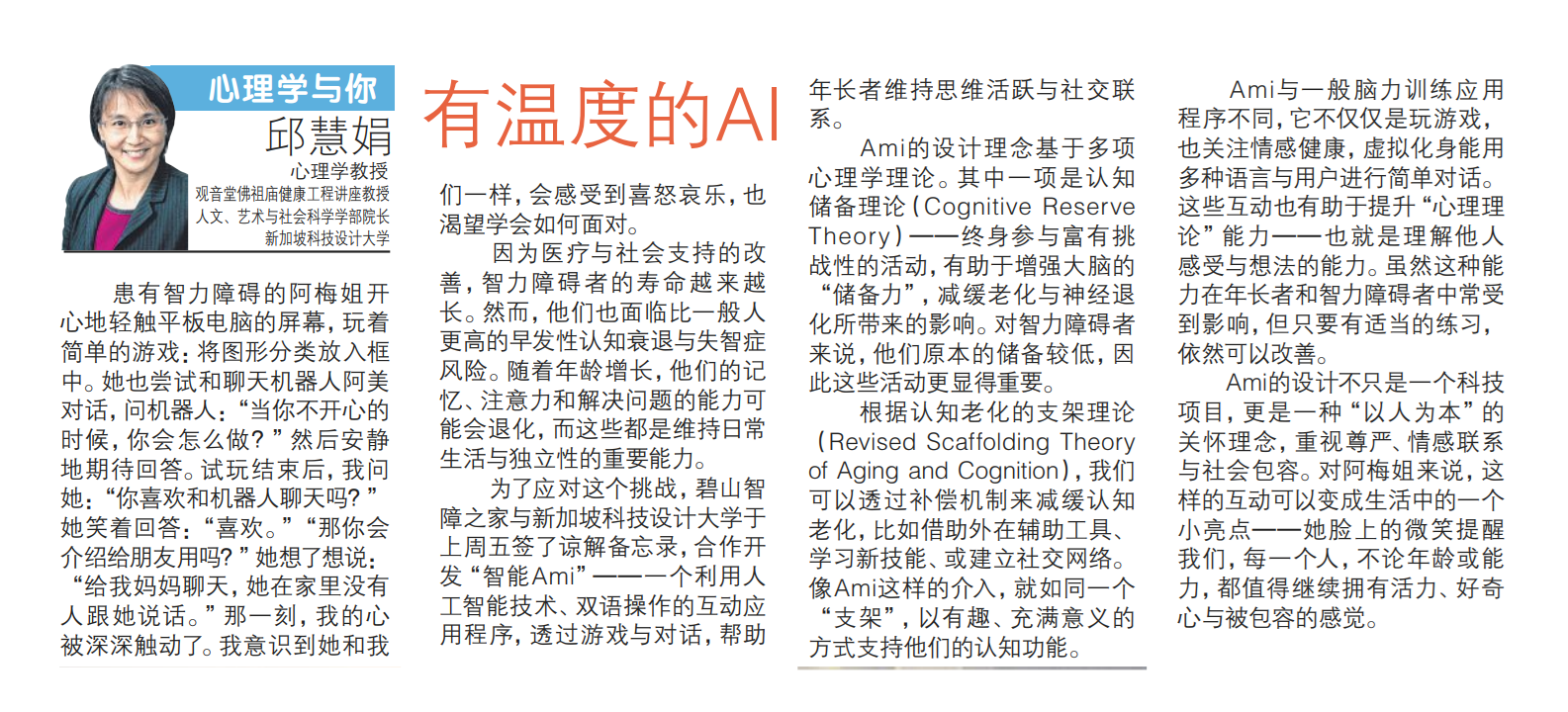AI with Warmth
Shin Min Daily News, 有温度的AI
By Professor Yow Wei Quin, Head of Humanities, Arts and Social Sciences (HASS)
(Translated summary)
At a community home, A-mei, a woman with an intellectual disability, smiles as she gently taps on a tablet screen, playing a simple sorting game. She also chats with Ami, an AI chatbot, asking softly, “What do you do when you feel sad?” When asked if she enjoys talking to the robot, A-mei nods. “Yes,” she says, before adding thoughtfully, “I’d let my mother use it too—she’s alone at home and has no one to talk to.”
Moments like this reflect the heart behind Ami—an AI designed not just for cognitive training, but also for emotional connection and social inclusion.
Developed by SUTD in partnership with Bishan Home for the Intellectually Disabled, Ami draws on psychological theories such as Cognitive Reserve Theory, which suggests that engaging in stimulating activities helps the brain build resilience against aging and decline, and the Revised Scaffolding Theory of Aging and Cognition, which highlights how external aids and social interaction can slow cognitive deterioration.
Unlike typical brain-training apps, Ami supports both mental and emotional wellbeing. Through bilingual conversation and interactive games, it encourages users to express themselves, stay socially engaged, and exercise empathy—skills that often weaken with age or cognitive impairment but can be improved with practice.
Beyond technology, Ami embodies a human-centred approach that values dignity, emotional connection, and inclusion. For users like A-mei, such interactions bring small moments of joy—a reminder that everyone, regardless of age or ability, deserves to feel curious, connected, and alive.

